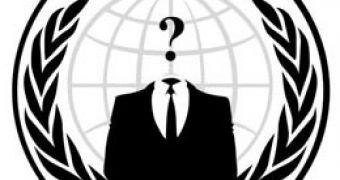The notorious Anonymous hacktivist collective has been described as a possible threat in a recently published NATO report about information and national security.
The report, drafted by NATO's General Rapporteur, Lord Jopling of the United Kingdom, has been submitted for approval to the Alliance's Committee on the Civil Dimension of Security.
It covers the effects leaks can have on national security and how social media can influence political movements, as seen in the Arab Spring protests.
The report covers "Cablegate," and discusses WikiLeaks and hacktivism, in particular Anonymous, the group that executed various attacks in support of the secrets-spilling organization.
"One of the most prominent group of on-line hackers - Anonymous - led a campaign against Iran, Australia and the Church of Scientology. Their most prominent campaign, however, took off in 2010 after WikiLeaks had released the US diplomatic cables," Lord Jopling writes.
He goes one to enumerate the group's DDoS attacks against Mastercard, Visa, PayPal, Amazon, PostFinance and the Swedish Prosecution Service.
Anonymous' attack against HBGary Federal is mentioned separately, in order to outline the group's capability to mount sophisticated and attacks that could expose sensitive information.
The report does contain some factual errors, though. It claims Anonymous hacked "hacked servers of HBGary Federal’s sister company." Assuming this refers to HBGary, which owns a stake of HBGary Federal, it is incorrect because the group did not hack any of its servers. Instead it compromised the CEO's email account hosted on Google Apps.
It was HBGary Federal itself that took the most severe hit and had its servers compromised. The report also tries to make it seem that Anonymous hacked HBGary Federal because it was hired by Bank of America to protect it against WikiLeaks.
In fact, the fact that HBGary Federal had been hired by Bank of America, was only discovered thanks to the hack. The hack itself was the result of the company's CEO claiming to know the identities of Anonymous' leadership.
"Today, the ad hoc international group of hackers and activists is said to have thousands of operatives and has no set rules or membership. It remains to be seen how much time Anonymous has for pursuing such paths.
"The longer these attacks persist the more likely countermeasures will be developed, implemented, the groups will be infiltrated and perpetrators persecuted," the report concludes.

 14 DAY TRIAL //
14 DAY TRIAL //